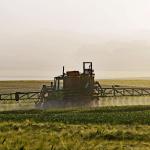The results of the USDA's Pesticide Data Program (PDP) for 2020 are in, and they lend themselves to two important but unsurprising conclusions: the trace amounts of pesticides in our food supply still don't pose a measurable health risk; environme
Food & Nutrition
Last July, the UN published a startling report documenting the pandemic's effect on global food security in 2020: “In many parts of the
A few things can be said with certainty about “non-GMO” food labels.
As part of the European Union, the UK was a stronghold of anti-GMO opposition. Post-Brexit, however, Britain is changing its outlook for the better.
Some self-absorbed gym rats will go to extreme lengths to look like bigger idiots more ripped than the other self-absorbed gym rats scurrying around.
Now there is no argument for the need of communities to improve their public space infrastructure to allow for the availability of parks, bike lanes, walking paths, smoking policies, faith-based organizations, improved educational efforts, etc., a
“Celebrities are particularly influential. On social media, celebrities are perceived as fellow users but also as more credible than ordinary users and more trustworthy than television advertisements.
Bacteria cause most foodborne illnesses, particularly E. coli, Salmonella, or Listeria.
“This Roundup ingredient might cause cancer—but the EPA won’t ban it,” Popular Science told its readers in a terribly misleading January 13 story about the weedkiller glyphos
The USDA's “bioengineered” label now affixed to many products in grocery stores is a massive waste of money that will offer consumers no useful safety or nutrition information, something the












